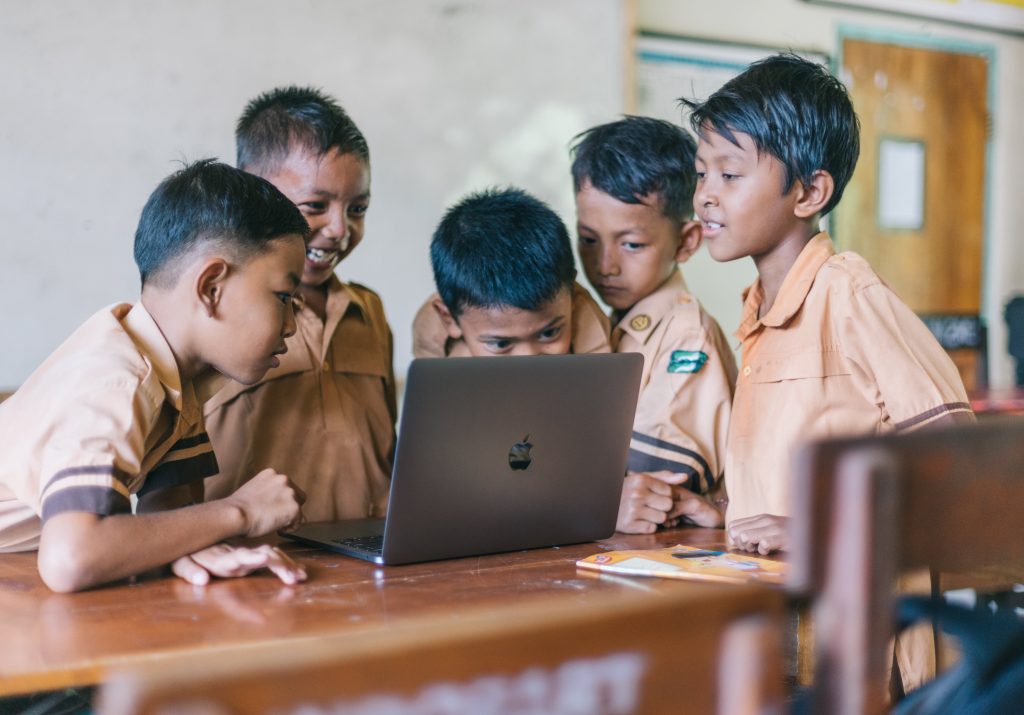
The Effects of Stereotypes on People Living in Poverty
Stereotypes have a profound impact on individuals living in poverty, often perpetuating negative perceptions and further marginalizing those already facing significant challenges. These stereotypes not only shape public opinion but also influence policies and social attitudes toward poverty.
One of the most damaging effects of stereotypes is the stigma that it creates. People living in poverty are often stigmatized as lazy, unmotivated, or even deserving of their circumstances. This stigma can lead to feelings of shame and self-blame among individuals experiencing poverty, hindering their ability to seek support or escape from their situation.
Furthermore, stereotypes about poverty can reinforce systemic inequalities. By portraying poverty as solely an individual failing rather than a result of broader socioeconomic factors, these stereotypes divert attention away from addressing structural issues such as lack of access to education, healthcare, and employment opportunities.
Stereotypes also contribute to the cycle of poverty by limiting opportunities for upward mobility. When employers
subscribe to biased views about people in poverty being unreliable or unskilled workers based on their economic status, it becomes more challenging for individuals living in poverty to secure stable employment.
Moreover, these stereotypes can affect mental health outcomes for those experiencing poverty. Constant exposure to negative portrayals may erode self-esteem and lead to increased stress levels among individuals already grappling with financial hardships.
We must challenge these harmful perceptions by raising awareness about poverty’s complexities and advocating for policy changes that address systemic barriers. By fostering empathy instead of judgment towards those living in impoverished conditions, we can create a society that supports rather than stigmatizes those who need it most.
Common Misconceptions About Poverty
When it comes to poverty, many misconceptions prevail in our society. These misconceptions often stem from stereotypes and a lack of understanding about the complex factors that contribute to poverty. It is important to break down these misconceptions to foster empathy and create a more inclusive society.
One common misconception is that all impoverished people are lazy or unmotivated. This stereotype fails to take into account the systemic barriers and limited opportunities faced by individuals living in poverty.

Many people work multiple jobs and still struggle to make ends meet due to low wages, lack of access to education, or discrimination based on race or gender.
Another misconception is that impoverished individuals are solely responsible for their circumstances. While personal choices certainly play a role, it is crucial to recognize the impact of structural inequality and societal factors on individual outcomes. Factors such as inadequate healthcare, limited affordable housing options, and unequal access to quality education can greatly influence an individual’s ability to escape poverty.
Additionally, there is a misconception that people living in poverty are not contributing members of society. This belief overlooks the resilience and strength displayed by individuals facing economic hardship. Many individuals experiencing poverty actively participate in their communities through volunteer work, caring for family members, or advocating for social change.
It is also important not to equate wealth with intelligence or moral superiority. The assumption that those who have more money are somehow smarter or better than those living in poverty perpetuates harmful stereotypes and undermines efforts toward equality.
By challenging these common misconceptions about poverty, we can shift public perception towards a more empathetic understanding of the complexities surrounding this issue. It requires us all – as individuals, communities, and societies –to educate ourselves about the realities of life below the poverty line.
In conclusion
Breaking down these stereotypes will ultimately lead us toward creating a more just society where everyone has equal opportunities regardless of socioeconomic status.
Breaking Down Stereotypes Through Education and Awareness
One of the most effective ways to break down stereotypes surrounding poverty is through education and awareness. By providing accurate information and challenging misconceptions, we can help people develop a more nuanced understanding of poverty.
Education plays a crucial role in dispelling stereotypes about poverty. Schools can incorporate lessons on social inequality, economic disparities, and the root causes of poverty. This not only helps students gain a better understanding but also promotes empathy and compassion towards those experiencing poverty.
In addition to formal education, raising awareness through various mediums is essential. Social media campaigns, documentaries, and community events can change perceptions about poverty. These platforms allow individuals with lived experiences to share their stories, humanizing the issue and challenging preconceived notions.
Engaging in conversations about poverty is another way to promote understanding.
Encouraging open dialogue among friends, family members, or colleagues helps debunk stereotypes by encouraging critical thinking and questioning assumptions.
It’s important for organizations and institutions to actively work towards dismantling these stereotypes as well. Nonprofits dedicated to addressing poverty can provide resources that challenge misconceptions while advocating for policy changes that address systemic issues contributing to inequality.
By emphasizing education and fostering awareness around the realities of poverty, we can begin breaking down long-held stereotypes that perpetuate stigma. Through increased knowledge comes greater empathy and an increased desire for change – ultimately leading us towards a more inclusive society where everyone has equal opportunities regardless of socioeconomic status.
Steps Towards Empathy and Understanding
1. Educate Yourself:
One of the first steps towards empathy and understanding is to educate yourself about poverty and its complexities. Take the time to read books, watch documentaries, or attend workshops that provide insight into the experiences of those living in poverty.
2. Challenge Your Assumptions:
It’s important to challenge your assumptions and biases about poverty. Recognize that stereotypes are often based on limited information and can perpetuate harmful narratives. Engage in critical thinking and question preconceived notions.
3. Listen with an Open Mind:
To truly understand someone’s experience with poverty, it’s crucial to listen with an open mind. Allow individuals who have experienced poverty to share their stories without judgment or interruption. By actively listening, we can gain a deeper understanding of the challenges they face.
4. Practice Empathy:
Empathy involves putting yourself in someone else’s shoes and understanding their emotions and experiences. Imagine what it would be like to live in constant uncertainty or struggle financially. This helps foster compassion for those living in poverty.
5. Support Organizations Addressing Poverty:
Take action by supporting organizations that alleviate poverty within your community or globally. Join volunteer programs, donate money, fundraise, etc. These actions not only help make a difference but also demonstrate solidarity with those facing economic hardships.
6. Be Mindful of Language:
Be mindful of the language you use when discussing poverty.
Avoid derogatory terms or generalizations that further stigmatize people living in poverty.
Choose words that promote respect, dignity, and equality instead.
By being aware of our language choices, we can contribute to breaking down stereotypes surrounding poverty.
By taking these steps towards empathy and understanding, we can work together towards creating a more inclusive society where everyone has equal opportunities regardless of their socioeconomic status.
Conclusion: Moving Towards a More Inclusive Society
To truly understand poverty and break down the stereotypes associated with it, we must make a concerted effort as individuals and as a society. By recognizing the effects of stereotypes on people living in poverty, challenging common misconceptions, and promoting education and awareness, we can take steps toward empathy and understanding.
We must seek out diverse perspectives and listen to the stories of those who have experienced poverty firsthand. This will help us broaden our understanding of poverty beyond simplistic stereotypes. We must also be mindful of the language we use when discussing poverty, avoiding stigmatizing labels or derogatory terms.
Education plays a vital role in breaking down stereotypes. By incorporating lessons about poverty into school curricula at various levels, we can foster empathy early on in life. Additionally, community organizations should offer workshops or events to debunk poverty misconceptions.
Creating opportunities for open dialogue is essential for dismantling stereotypes related to poverty. This could involve hosting community forums where individuals from different socioeconomic backgrounds can share their experiences without judgment. Through these conversations, bridges can be built between other communities, and misunderstandings can be cleared up.
Efforts towards eradicating poverty should focus not only on addressing immediate needs but also on tackling systemic issues such as income inequality and lack of access to education or healthcare. By advocating for policies that promote social equality and economic justice, we move closer to creating a more inclusive society where everyone has an equal chance to thrive.
Breaking down stereotypes requires us to challenge our preconceived notions about poverty. It means stepping outside our comfort zones, seeking out new information, and engaging in meaningful conversations with others who may have differing viewpoints – all to foster empathy and understanding.
By working together towards creating a more inclusive society – one that embraces diversity rather than perpetuating harmful stereotypes – we can begin to dismantle long-standing barriers and create a world where poverty is not stigmatized but rather seen as a problem that affects us all and one that requires a collective effort to solve.



